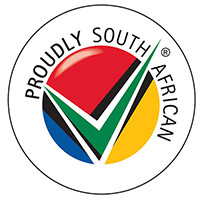Last year we wrote about the massive spending that comes with elections. Now that we know the date of this year's general election, manifestos are being launched, rallies organised, cadres are being mobilised and T-shirts, caps and berets are being distributed around the country.
Despite attempts to engage the major political parties directly late last year, in an appeal to ensure all election paraphernalia was procured locally (we all know that many items in the past have been procured from China), we received not a single response.
So, even though we are quite sure that most of the election procurement has now taken place, we are setting our sights on the parties' policies on localisation and strategies for job creation, which will have a longer-term impact on our economy than a few thousand branded shirts.
To this end, we have convened a town hall debate in Cape Town this Thursday, while Parliament is still in session and our elected MPs and party representatives are still in town. We already have the commitment of a number of the parties who are willing to come and account for their local procurement policies. Our Chief Whip for the event is the fearless Devi Sankaree Govender, who will ensure that the honourable participating members are called to order.
So far, we have gone through the manifestos of the ANC, EFF, UDM and DA. Cope and the IFP will launch theirs on March 9 and 10, respectively, and we will continue to monitor each party as they release their policy positions. For those of you who prefer not to wade through pages and pages of political discourse, we will summarise here what we know already.
It is interesting to note that the UDM does not feature the actual word "localisation" once, although they do state that they will "devote more resources to promote buying South African as a tool to stimulate local wealth generation and job creation".
Furthermore, they will cease the mass export of raw materials so that jobs are created through home-grown processing and manufacturing.
The ANC, in its capacity as the governing party, has already implemented legislation in favour of local procurement in the public sector, and has committed to increasing the number of designated items on that list and to penalising state institutions that fail to comply.
It also has a plan for increasing localisation in the private sector, including attaching conditions to state support and incentives to "encourage" companies to match government local procurement commitments.
More will need to be done to get localisation buy-in from those companies that are not in any way dependent on state subsidies, grants, or even state procurement, as this seems to be a gap in the policy space, mostly as a result of trade agreements and regulations which we are careful not to violate as a country.
More will need to be done to get localisation buy-in from those companies that are not in any way dependent on state subsidies, grants, or even state procurement, as this seems to be a gap in the policy space, mostly as a result of trade agreements and regulations which we are careful not to violate as a country.
As far as protection for local manufacturing goes, the ANC promises more targeted tariffs and non-tariff measures, where necessary, which is pretty much what we currently apply.
The EFF's policies around local procurement focus on benefiting women and youth. Their measures include 80 percent legislated state procurement of local goods and services, 100 percent local procurement of foodstuffs provided to state institutions such as schools and hospitals, all food for local consumption to be produced and processed on a "massive scale", everything required for state construction to be locally produced (except those items for which we have no capacity to produc...), musical artists will benefit from the construction of recording studios in every municipality, ensuring all local music is recorded and produced here, and perhaps most radically they will impose a 60 percent local content quota on our stores.
The DA, like the UDM, does not seem to use the word "localisation" once, but in their 83-page manifesto "local" features 46 times, mostly referring to local government.
They do, however, cite specific industries in distress, such as steel and sugar, and they state that they will "act in a manner which shields local manufactures and service industries", particularly where immoral and illegal dumping of imported products is concerned.
All manifestos speak about the "what" with very little detail on the "how", and so the forum that we are convening this Thursday seeks to unpack party positions on localisation and job creation.
Come one, come all, the floor is open to every political party. Tell us exactly not just what your policies are on paper but how you plan to deal with localisation (or not) and let voters decide.
My song for this week is Sankomota's Now or Never, as the political parties have to prove their mettle and worth to an electorate concerned with the most pressing issues of economic growth and job creation.
Localisation is an instrument used worldwide to stimulate ailing economies and we would like to know exactly their position on it.


